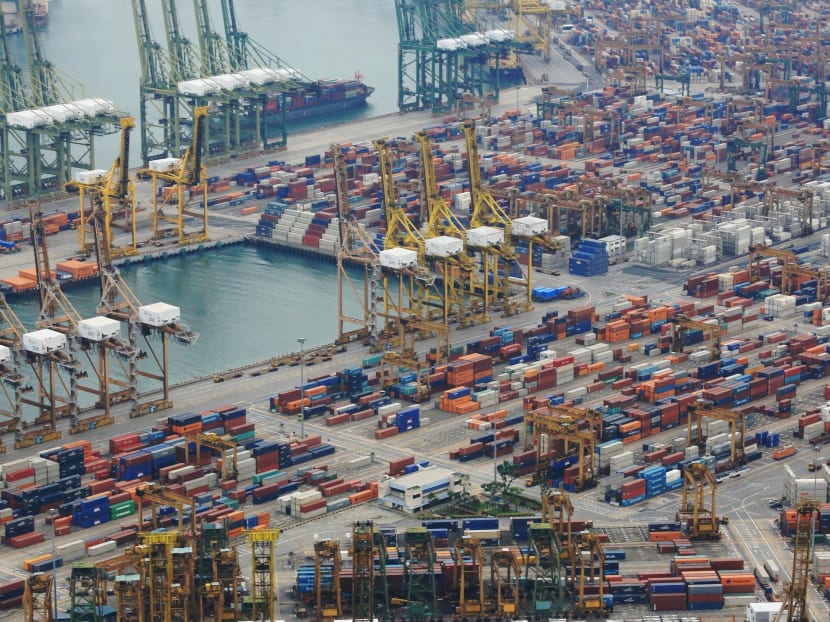The authorities given powers to inspect North Korea cargo in transit under new law
SINGAPORE — In order to fulfil its obligations as a member of the United Nations (UN), Singapore on Monday (March 19) passed a law extending powers to authorities here to search, inspect, and seize goods originating from or destined for North Korea that are in transit on a vessel or aircraft.

In order to fulfil its obligations as a member of the United Nations, Singapore on Monday (March 19) passed a law extending powers to authorities here to search, inspect, and seize goods originating from or destined for North Korea that are in transit on a vessel or aircraft. Photo: Koh Mui Fong/TODAY
SINGAPORE — In order to fulfil its obligations as a member of the United Nations (UN), Singapore on Monday (March 19) passed a law extending powers to authorities here to search, inspect, and seize goods originating from or destined for North Korea that are in transit on a vessel or aircraft.
The law comes two years after the UN Security Council mandated under resolution 2270 that all its member states should inspect cargo within or transiting through their territory — including airports, sea ports and free trade zones — that was destined for or originating from the nuclear-armed state.
The council had imposed fresh sanctions on North Korea in March 2016 following its nuclear weapons test and missile launch, which were carried out in January and February 2016, respectively.
In his speech in Parliament on Monday, Senior Minister of State for Trade and Industry Koh Poh Koon said the move demonstrates Singapore’s resolve as a “responsible, global citizen to do its part to safeguard regional and international security”.
Previously, the law stated under the Regulation of Imports and Exports Act only covered goods that are imported, exported or transhipped — goods offloaded and moved onto a different conveyance for the purpose of being taken out of Singapore.
The law change will target goods arriving and leaving Singapore on the same conveyance on which they were brought in.
Beyond fulfilling its legal obligations, Dr Koh also pointed out that it demonstrates Singapore’s “clear” stance towards North Korea’s “provocative actions”.
He said: “The DPRK’s (Democratic People’s Republic of Korea) development of nuclear and ballistic missile programmes poses a grave threat to international peace and security. It is in clear violation of the UN Security Council Resolutions.”
Dr Koh’s statement was made amid reports last month of talks between the United States and several nations, including Singapore, on coordinating a stepped-up crackdown on North Korea in an attempt to squeeze Pyongyang’s use of seagoing trade to feed its nuclear missile programme.
In its response then to TODAY’s queries about Singapore’s involvement in the initiative, the Ministry of Foreign Affairs (MFA) had said that Singapore takes its international obligations under UN Security Council resolutions, including those pertaining to cargo inspection, “seriously and is implementing them assiduously”.
The development also came in the wake of a leaked UN draft report on March 13 claiming that two Singapore-based firms, OCN and T-Specialist, continued to supply luxury goods to North Korea despite UN sanctions that were in place since 2006.
In response to a BBC report on the revelations, the MFA said that they had commenced investigations into the companies. The ministry did not elaborate on the matter as it cited ongoing investigations.
On November 8 last year, Singapore suspended all trade with Pyongyang, with the Singapore Customs posting a circular on its website informing traders that “all commercially traded goods that are imported, exported, transhipped or brought in transit” through Singapore to and from North Korea would be prohibited from that date.








